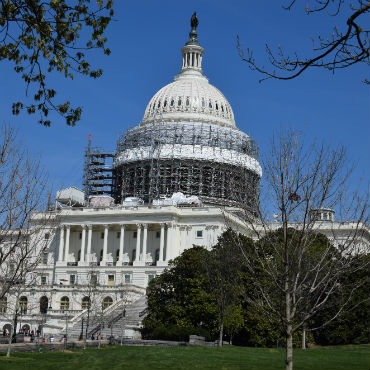White House, Congress gird for another NDAA showdown

Among the provisions the Obama administration opposes is a measure that would codify U.S. Cyber Command as its own unified command and one that would restrict funding for the Pentagon’s prized outreach office in Silicon Valley.

The White House has threatened to veto a defense policy bill that is set for a House floor vote this week, voicing numerous objections. Among the provisions the Obama administration opposes is a measure that would make U.S. Cyber Command its own unified command and another that would restrict funding for the Pentagon's prized outreach office in Silicon Valley.
The House Armed Services Committee last month passed the fiscal 2017 National Defense Authorization Act 60-2. The legislation would make key policy changes that would affect how the Defense Department approaches cyberspace and how it liaises with the private sector.
Lawmakers have for months mulled making Cyber Command its own combatant command rather than the subset of U.S. Strategic Command it is now, and the House bill would do just that. The move would further prioritize cyberspace as a warring domain for the military.
However, the White House objects to making that elevation of Cyber Command a statutory requirement. The Defense secretary and chairman of the Joint Chiefs of Staff "should retain the flexibility to recommend to the president changes to the unified command plan that they believe would most effectively organize the military to address an ever-evolving threat environment," the Office of Management and Budget said in a policy statement.
The tug-of-war over Cyber Command comes as the command takes on its most high-profile mission yet: hacking the Islamic State terror group.
The House bill also would pump the brakes on one of Defense Secretary Ash Carter's signature initiatives: the Pentagon's office in Silicon Valley for scouting emerging technologies. Lawmakers have expressed enthusiasm for the general concept, but skepticism for doling out funding for the nascent office, which is dubbed the Defense Innovation Unit Experimental. The legislation stipulates that no more than 80 percent of DIUX's budget be obligated until Carter's office submits a report clarifying the unit's mission and outlining metrics for measuring its success.
A third sticking point between the administration and lawmakers is the bill's restructuring of the Army's Distributed Common Ground System, a controversial intelligence platform with a history of delays and technical problems.
Commanders have in the past favored DCGS-A's government-built system over commercial software that is more popular with special operations units, according to an Associated Press report. The House bill implicitly addresses that tension by ceasing the in-house development of any DCSG-A component for which there is commercial software capable of meeting 80 percent of requirements.
But the Obama administration doesn't like that provision, either. OMB called the measure "duplicative and unnecessary," adding that it "mandates a commercial solution without regard for price, ability to support a modular open system architecture, or cost associated with proprietary software maintenance."
The House's consideration of the NDAA comes as lawmakers take up the defense appropriations bill. The House Appropriation Committee on May 17 advanced that legislation, which includes the $95 million the administration requested to build a new background check system for the Office of Personnel Management.


